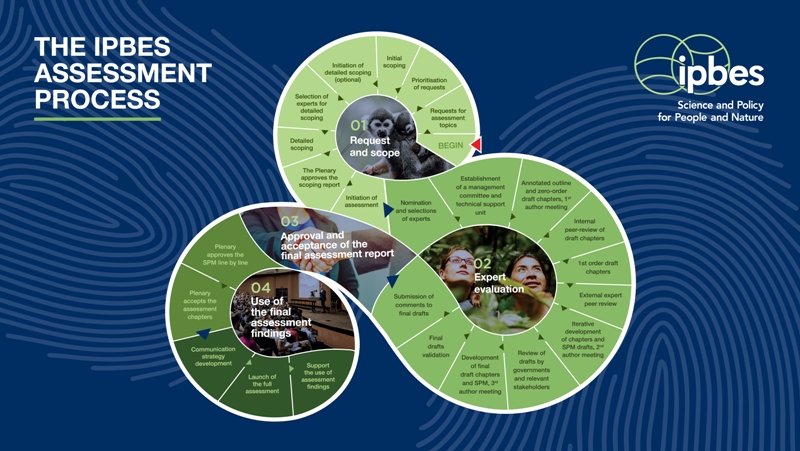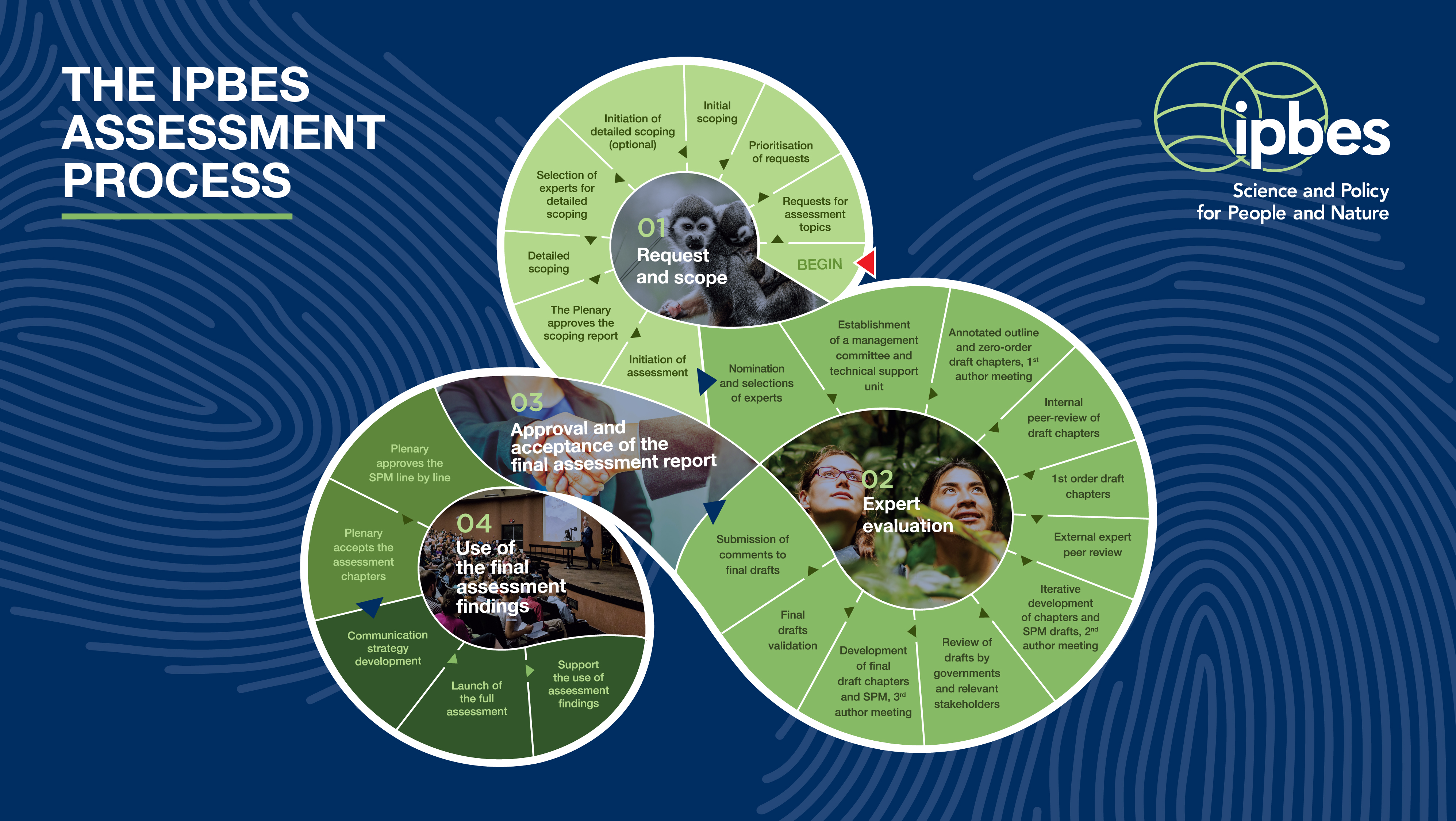File:IPBES-assessment stages-a.jpg
IPBES-assessment_stages-a.jpg (800 × 451 pixels, file size: 246 KB, MIME type: image/jpeg)
What you’re seeing is what is left to see
The Biodiversity Trend is Downward, Big Time Downward
Fixating on the concept of extinction can lead scientists to overestimate the state of the planet’s health. Extinction obviously matters. If a species is completely wiped out, that’s an important and irreversible loss. But that flip from present to absent, extant to extinct, is just the endpoint of a long period of loss. Before a species disappears entirely, it first disappears locally. And each of those local extinctions—or extirpations—also matters.
“As much as 50 percent of the number of animal individuals that once shared Earth with us are already gone, as are billions of populations,” wildlife scientists report. “While the biosphere is undergoing mass species extinction, it is also being ravaged by a much more serious and rapid wave of population declines and extinctions.”
The Worst Disease Ever Recorded
A doomsday fungus known as Bd has condemned more species to extinction than any other pathogen...
https://www.theatlantic.com/science/archive/2019/03/bd-frogs-apocalypse-disease/585862/
The Lingering Curse That’s Killing Killer Whales
Long-banned pollutants called PCBs could wipe out many orca groups within the next century...
https://www.theatlantic.com/science/archive/2018/09/pcbs-are-killing-killer-whales/571474/
Coral Reefs Are Bleaching Too Frequently to Recover
Reefs rarely overheated and died in 1980. Now, they are bleaching too fast to recover.
From the Arctic to the Amazon, almost no part of the world has been left untouched by the human-caused warming of the Earth’s climate system. But one ecosystem seems to be disintegrating faster than almost anywhere else: coral reefs, the tropical rainforests of the undersea world.
A new study, published in the journal Science, quantifies this discipline-wide impression of a vast and fast-moving destruction. It brings together observations of 100 coral-reef sites around the world going back to 1980, and it finds that severe bleaching events are far more common now than they were 35 years ago...
https://www.theatlantic.com/science/archive/2018/01/the-global-scourge-on-coral-reefs/549713/
The Intergovernmental Science-Policy Platform on Biodiversity and Ecosystem Services (IPBES)
File history
Click on a date/time to view the file as it appeared at that time.
| Date/Time | Thumbnail | Dimensions | User | Comment | |
|---|---|---|---|---|---|
| current | 20:59, 16 March 2019 |  | 800 × 451 (246 KB) | Siterunner (talk | contribs) |
You cannot overwrite this file.
File usage
The following 5 pages use this file:

